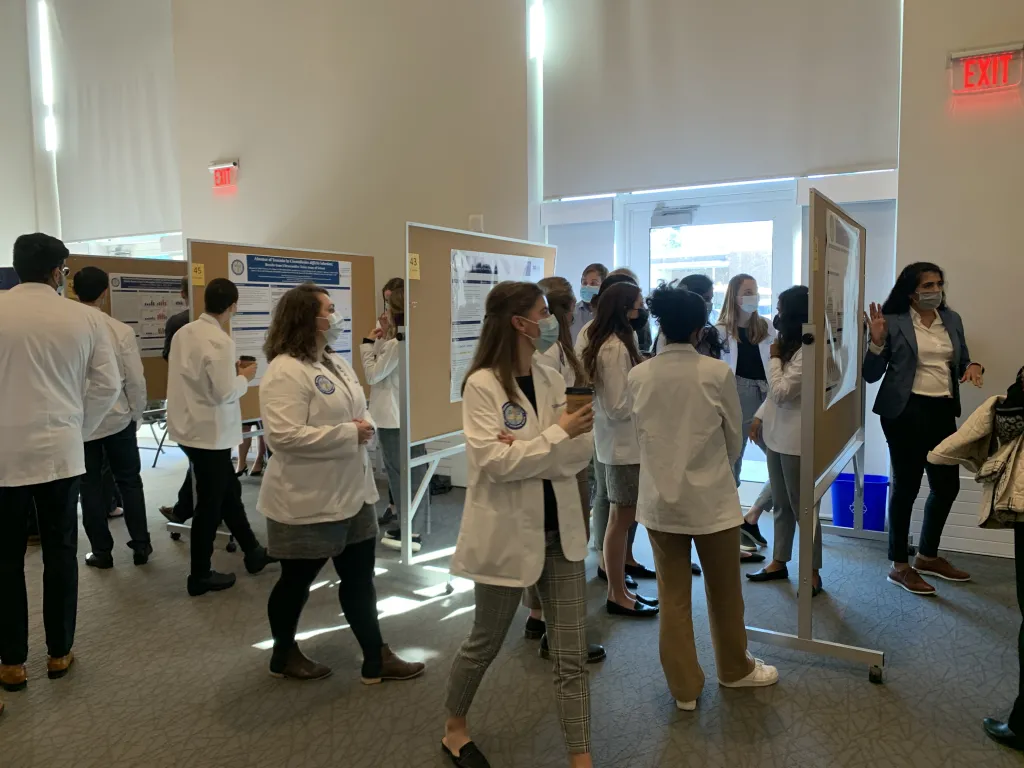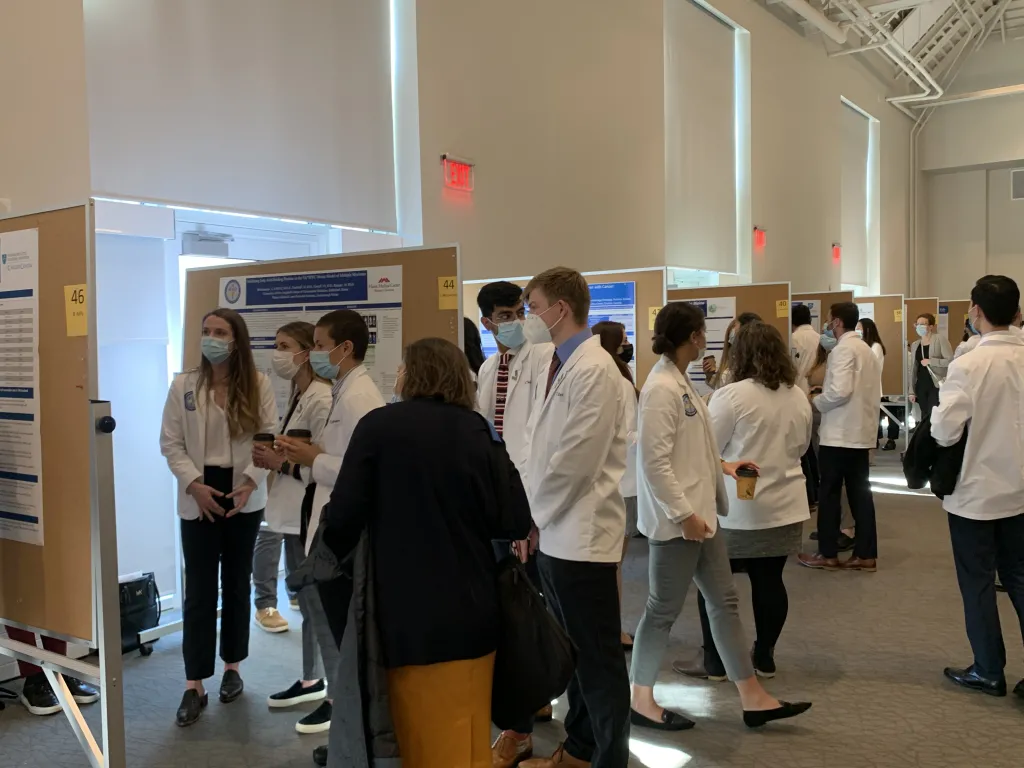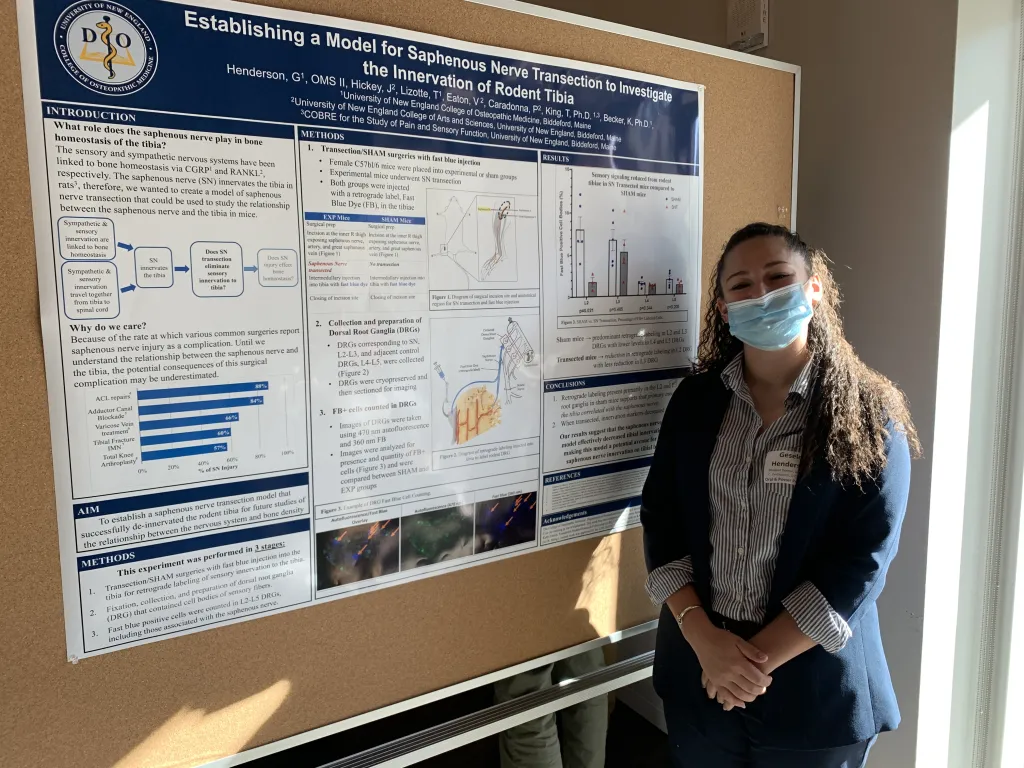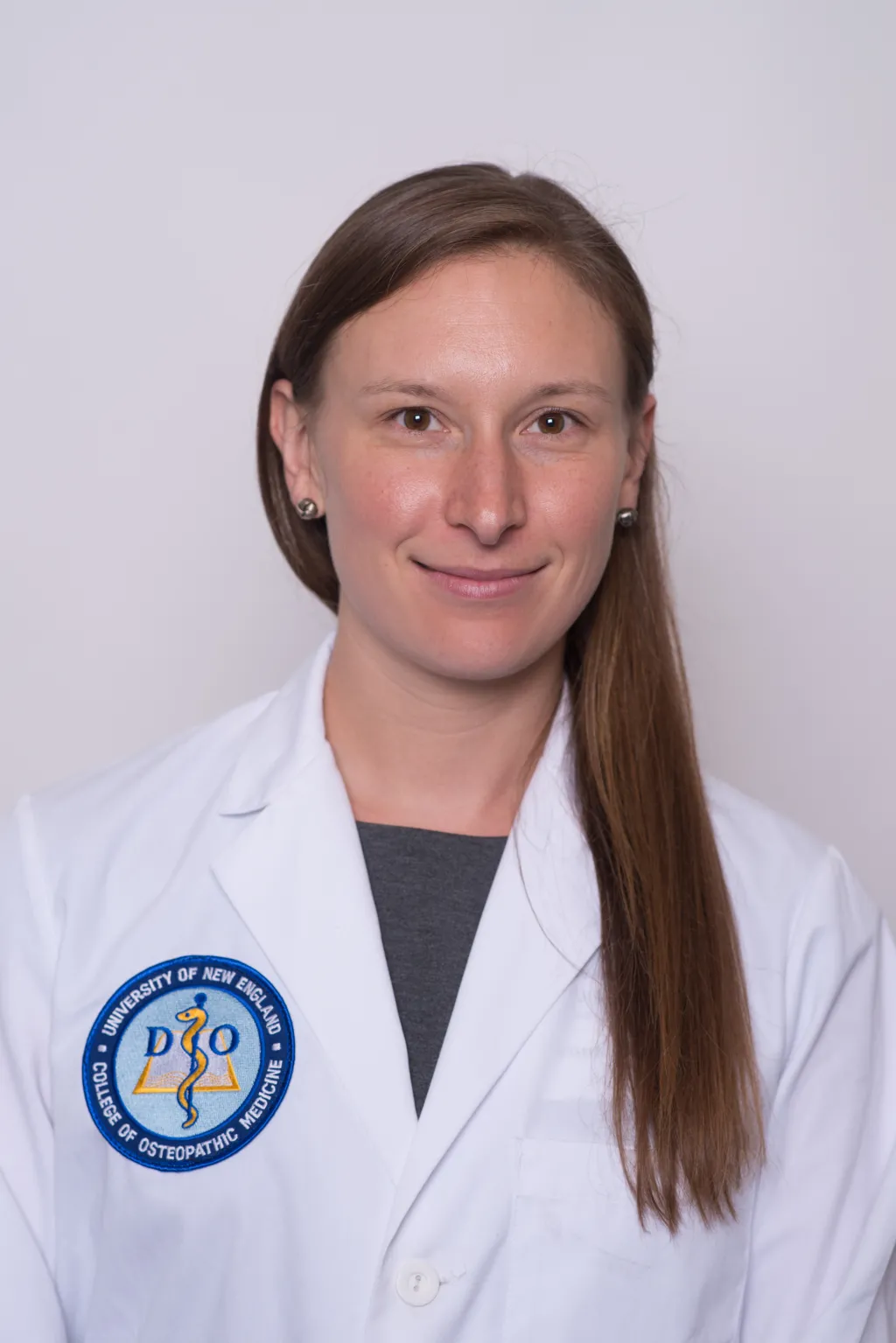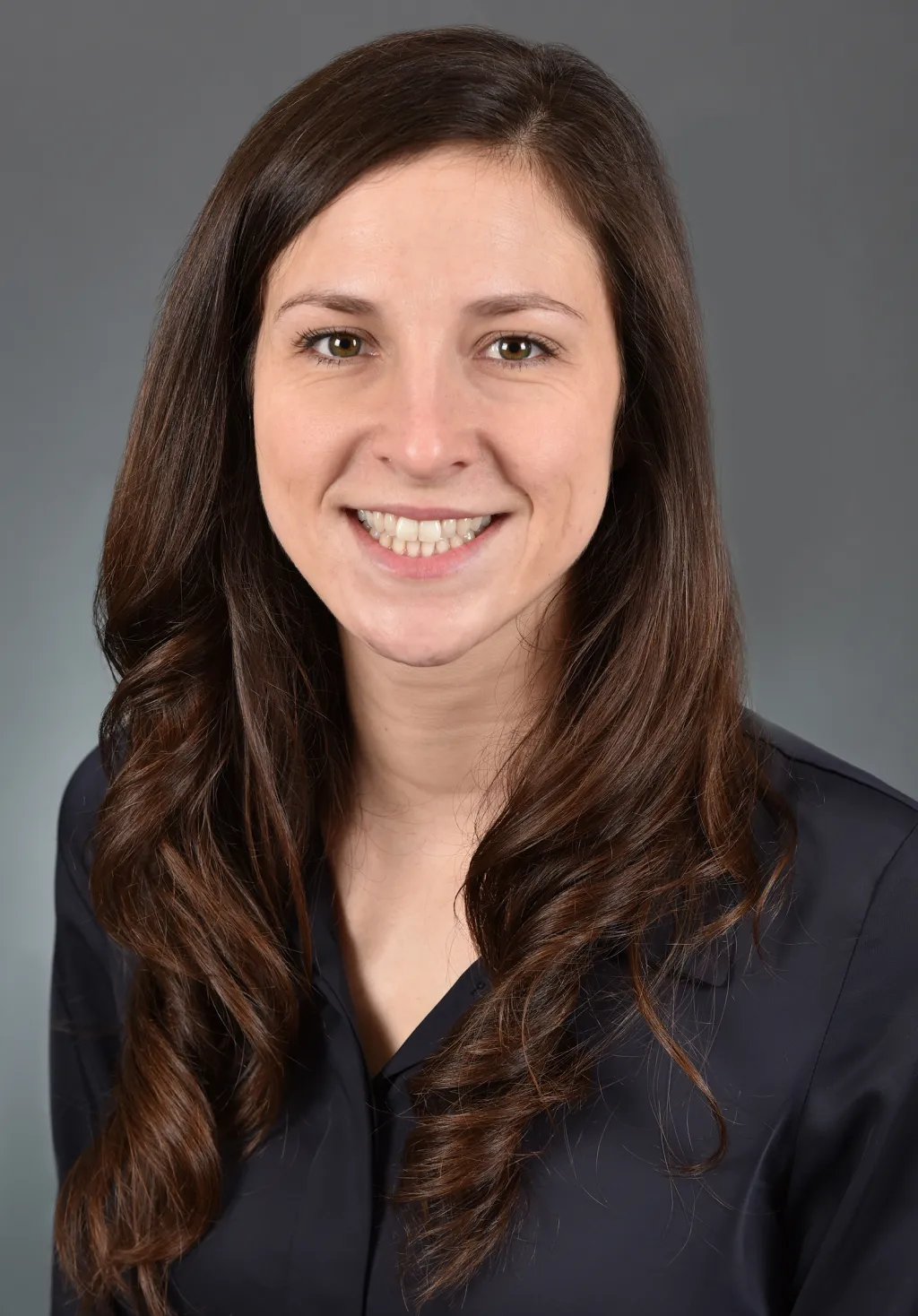Medical students present research at COM Research and Scholarship Forum
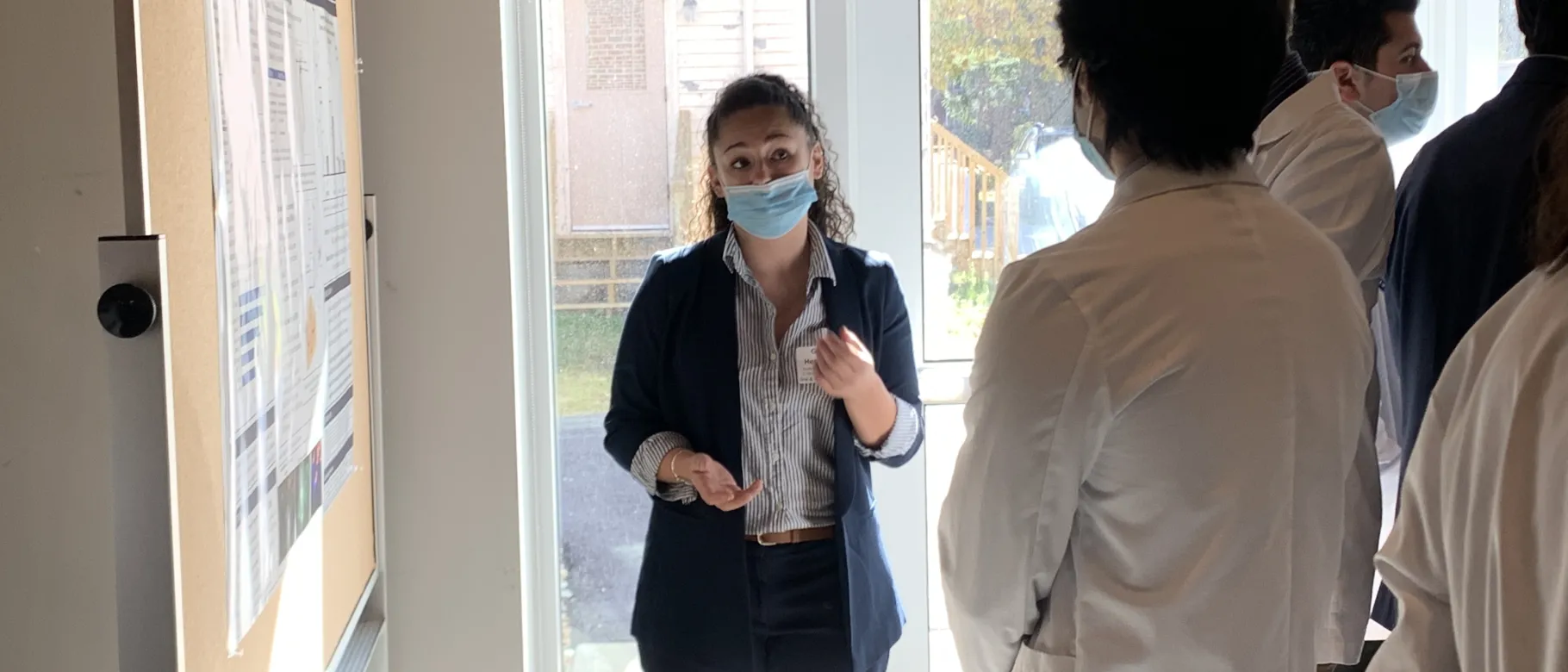
Nearly 50 student doctors presented projects related to case studies, basic science, and clinical or qualitative research at the University of New England College of Osteopathic Medicine Research and Scholarship Forum on Friday, Oct. 29, over multiple poster sessions in Innovation Hall on UNE’s Portland Campus.
The event drew students from all levels of their medical education who are engaged in research to showcase individual and group projects completed over the course of the semester. It also welcomed faculty, professional staff, and other members of the UNE community as spectators for the judged poster contest.
Following an introduction by Marilyn Gugliucci, Ph.D., professor and director of Geriatrics Education and Research in UNE's College of Osteopathic Medicine (UNE COM), the main event room of Innovation Hall quickly became a sea of white coats, abuzz with inquiry.
Several onlookers gathered around a poster by Gesele Henderson (D.O., ’24), whose project, “Establishing a Model for Saphenous Nerve Transection to Investigate the Innervation of Rodent Tibia,” studied how nerves in the body impact bone functions like storing and refining bodily nutrients.
“It’s very important, for me, to partake in research as an osteopathic medical student,” said Henderson, a featured speaker at the event who hopes to one day specialize in orthopedics. “One advantage of attending a small medical school like UNE is that our departments, professors, and students constantly collaborate with each other. At the end of the day, we all want to look at how basic science affects human life and medicine. This was a really great opportunity.”
Jenna Wozer (D.O., ’22), another featured speaker, presented a unique case study in which a patient presented as having features that were concerning as signs of potential child abuse but that, in fact, ended up being a common, yet underrecognized, benign skin condition.
Wozer said the goal of her project, “Removable Hyperpigmented Skin Lesion in a Non-Ambulatory Infant,” was to spread awareness of the skin condition terra firma-forme dermatosis, “so that it may be more readily recognized in order to reduce more extensive evaluations for similarly presenting conditions.”
For her research project, Summer Moukalled (D.O., ’25) — who works for the Digital Wellness Lab in the Division of Adolescent and Young Adult Medicine (AYAM) at Boston Children’s Hospital — explored the correlation between dating app use and risky sexual behavior among AYAM patients.
The project, “Examining Dating App Use and Sexual Risk Behaviors among Young Adults,” deemed behaviors like updating one’s profile or matching with other users as “likely benign” but found that activities like communicating or meeting up with others were “potentially risky.” From this, Moukalled said, the study concluded that young adults whose use of dating apps results in more interactions and communication — not just general use of the app — are more likely to engage in risky sexual behavior.
Moukalled said knowledge of disease prevention, plus the opportunity to conduct research into the matter, is valuable as a medical student.
“Understanding the etiology of the diseases we treat and helping prevent their onset are as equally important as providing care,” she remarked. “With that said, gaining exposure to research as medical students now gives us the ability to drive our own investigations later on, which will likely be based on insights gained from our clinical practices.”
Following initial poster sessions, Jane Carreiro, D.O., vice president for Health Affairs and dean of the UNE COM, introduced Paul Berkner, B.S. ’81, D.O. ’86, medical director for Student Health Services at UNE, who gave the keynote address, “How can I possibly fit research into my life?” The talk focused on how to make time for research as a practicing D.O., with Berkner using his own research on traumatic brain injury as an example.
Tamara King, Ph.D., chair of the UNE COM Research and Scholarship Committee, said that the Student Research and Scholarship Forum allows students to develop their presentation skills while showcasing their research to peers, basic scientific and clinical faculty, University administrators, and visitors from the public.
“This forum celebrates our students’ research accomplishments and provides them with a valuable experience to present their projects to a broad audience,” King remarked. “This is an excellent platform to hone their communication and presentation skills related to research and prepare them for future research endeavors.”
